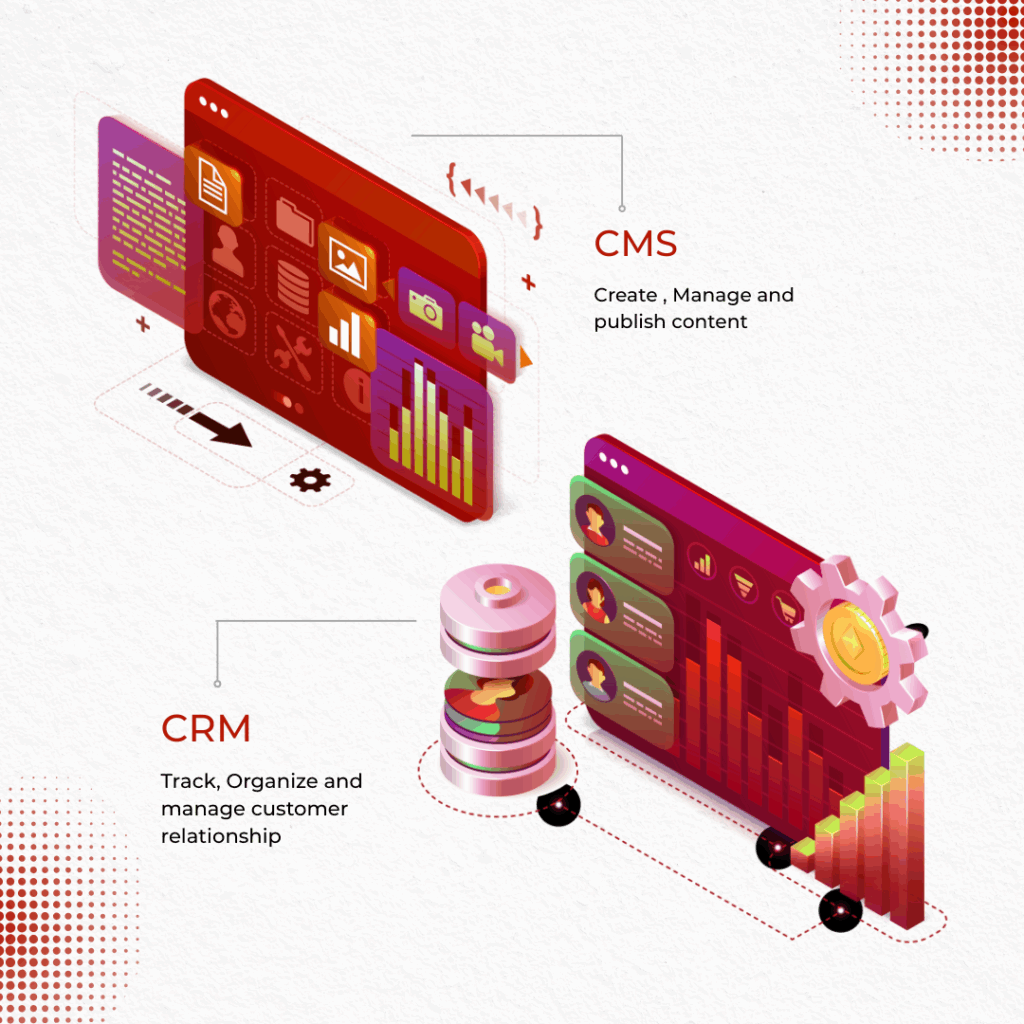
In today’s competitive digital market, having an online store on platforms like Shopify is only the beginning. To truly scale, attract loyal customers, and increase conversions, you need more than just a product page. That’s where two essential tools come into play: the CMS (Content Management System) and the CRM (Customer Relationship Management system).
In this article, we’ll explain what these tools are, why they’re important, and how using them together can take your e-Commerce project to the next level.
What is a CMS (Content Management System)?
A CMS is a platform that allows you to create, manage, and publish content on your website without needing deep technical knowledge. Think blog posts, landing pages, tutorials, or any page that helps educate or attract visitors. It gives you full control over your brand’s voice and online presence.
What is a CRM (Customer Relationship Management)?
A CRM is a tool designed to help you track, organize, and manage your customer relationships. It allows you to follow customer behavior, manage communication, and personalize experiences based on purchase history, preferences, or interactions.
Why You Should Use Both a CMS and CRM for Your Online Store
1. Better Customer Experience
Combining CMS and CRM helps create personalized content. For example, with CRM data, you can show product recommendations or blog articles that match a customer’s past purchases or interests.
2. Higher Conversion Rates
By understanding customer behavior through CRM and delivering targeted content with CMS, you reduce friction in the buying process and guide users toward action.
3. Efficient Marketing Automation
Your CRM can trigger automated emails based on customer actions, while your CMS can create tailored landing pages, a powerful duo for marketing campaigns.
4. Stronger SEO and Content Strategy
A CMS helps you create optimized content that drives traffic from search engines. Combined with CRM insights, you can focus on the topics that actually matter to your audience.
5. Data-Driven Growth
Your CRM provides rich analytics on customer behavior. When you align that data with content performance from your CMS, you gain deep insights to refine your strategy and grow faster.
Is a CRM Enough Without a CMS?
While a CRM is powerful, it doesn’t replace the role of a CMS. A CRM helps you manage customer data, but you still need a CMS to create valuable content that attracts and educates those customers.
Without a CMS, you’re limited in how you present your brand and drive organic traffic. Without a CRM, you’re missing the opportunity to nurture leads and turn one-time buyers into loyal clients.
Using both creates a complete digital ecosystem.
Ready to Grow Your Online Business?
Click here to get our FREE guide: “20 Proven Sales Techniques to Boost Your Online Store”
This downloadable resource is packed with actionable tips to convert visitors into buyers — an ideal next step after setting up your CMS and CRM.


